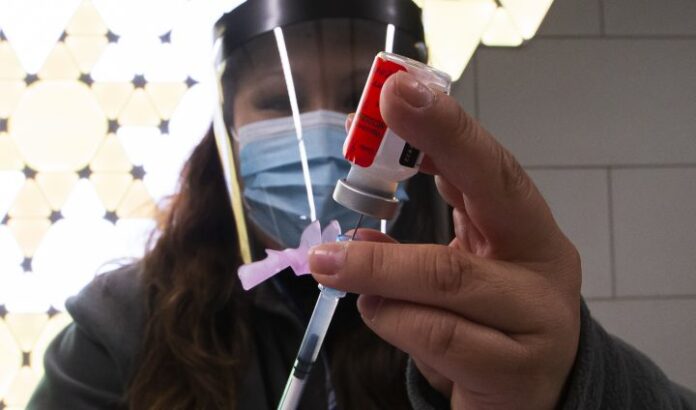Despite a decline in cases and deaths from COVID-19 worldwide, the World Health Organization says the virus remains a public health emergency of international concern.
For the first time since this declaration was made in January 2020, the WHO’s emergency committee has discussed whether the designation should be terminated.
It determined too many people are still dying, the virus is still spreading and there remain too many unknowns about how the 300 subvariants of the Omicron strain circulating around the world could change the current picture, the WHO said Wednesday.
“While the global situation has obviously improved since the pandemic began, the virus continues to change, and there remain many risks and uncertainties,” WHO director-general Tedros Adhanom Ghebreyesus told reporters during a briefing in Geneva.
“This pandemic has surprised us before and very well could again.”
Dr. Didier Houssin, chair of the WHO emergency committee, said the decision not to terminate the designation of COVID-19 as a global health emergency by the committee was unanimous.
He also said the number of deaths every week remains too high, and uncertainty and risk remains about the pathogenic effects and immune evasion of new variants of concern.
A total of 9,000 COVID-19 deaths were reported globally in the first week of October, which was a 10 per cent drop from the week before, according to WHO data.
There is also fear that terminating this emergency designation might aggravate inequalities that exist in many low-income countries regarding access to vaccines and therapeutics such as Paxlovid, and that it could demobilize global efforts to prepare for future pandemics, Houssin said.
Preliminary steps might be required before lifting this designation in future, such as a winter test in northern hemisphere countries as well as analyzing and preventing possible negative consequences, including possible legal implications regarding access to vaccines and anti-virals, Houssin added.
WHO also stressed Wednesday that a significant drop in surveillance, such as testing and genomic sequencing of new variants in most countries is making it increasingly challenging to keep track of how COVID-19 is changing and affecting populations around the world.
1:56
COVID-19 concerns rise again as hundreds of variants spread
The committee has issued temporary recommendations to its members states, including calls for increased surveillance capacity to detect and assess emerging variants and significant changes to COVID-19 epidemiology, as well as increased surveillance of the presence and evolution of SARS-COV-2 in animal populations, as well as equitable access to vaccines and therapeutics.
The committee is recommending that countries continue to adapt the use of individual-level protective measures to reduce transmission of the virus to ensure they are “appropriately tailored to the changing epidemiological context, including changing risks associated with future variants of concern.” This includes tailoring public health measures to any potential changes in the behaviour of the virus, “including as relevant for mass gathering events,” the WHO committee said in its recommendations.
In addition, the committee also recommended member states continue to adjust remaining international travel-related measures, and that countries should “not require proof of vaccination against COVID-19 as a prerequisite for international travel.”
© 2022 Global News, a division of Corus Entertainment Inc.



